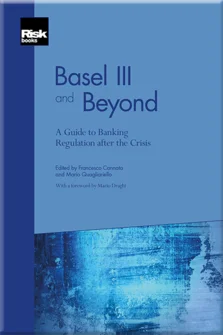A Brazilian Perspective on Basel III
Lucio Rodrigues Capelletto, Paula Cristina Seixas de Oliveira
Foreword
Introduction to 'Basel III and Beyond'
The Big Financial Crisis
The Policy Response: From the G20 Requests to the FSB Roadmap; Working Towards the Proposals of the Basel Committee
The New Definition of Regulatory Capital
A New Framework for the Trading Book
Counterparty Credit Risk and Other Risk-Coverage Measures
Tools for Mitigating the Procyclicality of Financial Regulation
The Regulatory Leverage Ratio
The New Framework for Liquidity Risk
The Discipline of Credit Rating Agencies
Systemically Important Banks
Regulating Remuneration Schemes in Banking
Crisis Management and Resolution
The Impact of the New Regulatory Framework
A Brazilian Perspective on Basel III
A New Institutional Framework for Financial Regulation and Supervision
Structural Regulation Redux: The Volcker Rule
The Changing Uses of Contingent Capital under the Basel III Framework
14.1 Introduction
As examined in Chapter 3, the Basel III reform has been discussed and endorsed (with the FSB and the G20 addressing the problems that resulted from the financial crisis) under a stronger institutional ground and a more expanded constituency than the Basel II Accord. This contributed to strengthening the decision-making process at the global level, with the aim of promoting greater homogeneity in the subsequent implementation of the new standards.
The publication of the new Basel Accord was a landmark for banking systems. Many countries have changed their prudential framework and implemented new procedures to guarantee the regular functioning of their financial systems. Among them, Brazil can be seen as an example of an emerging market that has strengthened its financial system in the midst of a transitional social environment, migrating from an unstable to a stabilised economy.
During the 2007 financial crisis, when economic fundamentals and financial systems were put under an enormous amount of stress, Brazil showed great resilience, as demonstrated by the fact that it
Copyright Infopro Digital Limited. All rights reserved.
As outlined in our terms and conditions, https://www.infopro-digital.com/terms-and-conditions/subscriptions/ (point 2.4), printing is limited to a single copy.
If you would like to purchase additional rights please email info@risk.net
Copyright Infopro Digital Limited. All rights reserved.
You may share this content using our article tools. As outlined in our terms and conditions, https://www.infopro-digital.com/terms-and-conditions/subscriptions/ (clause 2.4), an Authorised User may only make one copy of the materials for their own personal use. You must also comply with the restrictions in clause 2.5.
If you would like to purchase additional rights please email info@risk.net











